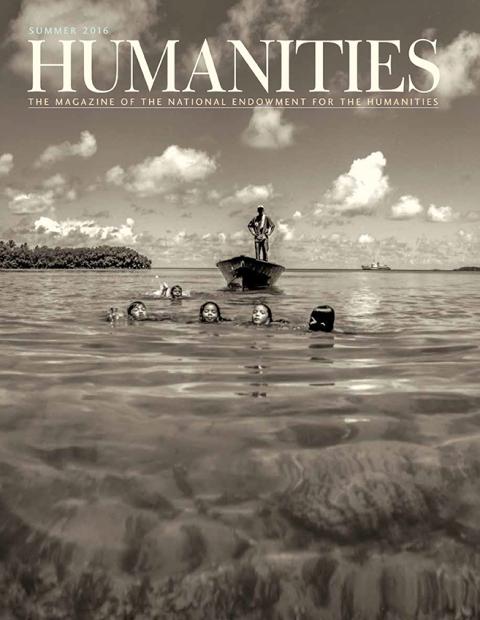Armand DeKeyser recently went to a Food for Thought Lunchtime Lecture sponsored by the Alabama Humanities Foundation and the Friends of the Alabama Archives. While he ate a sandwich, he says, he listened to scholar Karen R. Utz discuss the music of the Birmingham District’s mines, railroads, and mills.
“I walked away learning about these various singers that I’d never heard of. . . . I love that kind of stuff,” says DeKeyser, executive director of the Alabama Humanities Foundation. “For an hour, I got educated. I didn’t know anything about Birmingham music, and it’s a very narrow area. And I had a blast doing that. I get to do that all the time.”
Until he joined the foundation, participating in humanities events was not an everyday part of his job. Self-described as an “inch deep, but a mile wide,” DeKeyser made his career in politics. He served as chief of staff for U.S. Senators Jeff Sessions and Bob Corker. During his eight-year tenure with Sessions, DeKeyser managed a 40-person staff and oversaw a $2.1 million annual budget. Upon DeKeyser’s departure from the job, Sessions went to the floor of the Senate to pay tribute to his expertise in both areas.
“As my wife says, I do like numbers,” DeKeyser says. “When I worked in the Senate office, I managed the staff. Obviously, a lot of it was budgeting. In the Senate you have a certain budget. If you go above that budget, the member pays for the rest of the staff. Well, Jeff said, ‘No, I’m not paying for that. Make sure you don’t go over budget.’ It wasn’t that hard.”
Before going back home to Alabama, DeKeyser spent time in the private sector. When he heard about the foundation’s executive director job, he wasn’t sure he was right for it. Although he has a degree in Spanish, the Auburn graduate didn’t consider himself a humanities expert.
The good news, he says, is that the board was looking for someone who could manage a staff and budget and move the humanities forward in the state. Understanding Alabama’s politics and knowing about its businesses were assets.
DeKeyser says, “It is helpful that I have that knowledge in Washington. And I can go to those people and say, ‘Hey, do you understand what we’re doing? I know to you, it’s just a really bitty line item in the budget, but let me tell you the impact it has.’’’
The foundation’s director doesn’t have to look far for impact. Across the state, Prime Time Family Reading Time encourages literacy for at-risk children by involving their caregivers. To make it easier for families to attend the reading and book discussion sessions, meals are provided. The program has helped families bond over books and made the local library a part of their lives.
Moving away from the traditional concept of a humanities activity and making programming accessible to all people remain a central focus of DeKeyser’s vision for the foundation.
For instance, he is excited about the foundation’s literature programs. As a veteran of Operation Desert Storm—DeKeyser was an active-duty and reserve Army officer for 28 years, retiring in 2000 as a lieutenant colonel—he sees a need to encourage projects that serve veterans throughout Alabama. Literature and the Veteran Experience uses poetry, essays, and fiction as the basis for discussion among small groups of veterans, as well as health-care workers. Health Care and the Humanities is a film- and literature-based discussion program for people living with HIV/AIDS. The foundation also has started groups for veterans in prison.
“The prison programming is not what you would normally think of as a humanities effort,” he says. “But the 15 prisoners who participated in this class for 17 weeks—almost a full semester—they really enjoyed it.”
DeKeyser says that one of his proudest moments on the job came during a session of the 2013 National Humanities Conference held at the 16th Street Baptist Church, site of the 1963 bombing that killed four girls. The meeting included poignant discussions of slavery, civil rights activism, and desegregation, and those discussions have continued to resonate in programming in other states.
Looking ahead, DeKeyser is planning an exhibition program for Alabama’s bicentennial. Similar to the Smithsonian’s Museum on Main Street, the exhibit will travel to all 67 counties in Alabama.
“Alabama didn’t just start in 1819 when the state was founded,” he says. “The Native Americans were here for a long time. Mobile was founded in 1702. We had a Civil War. We’ll obviously talk about state history, but it will also be a regional history.”
“The sense of place is really important in Alabama,” he says.

